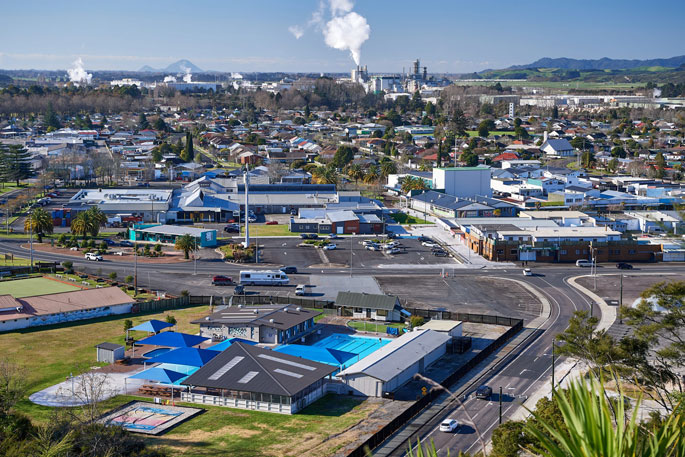Kawerau District Council has agreed to borrow $2 million, the first substantial debt the council of New Zealand's smallest district has had in over 18 years.
In its long-term plan for 2021-to-2031, the council signaled its intention to borrow to replace all the district's existing steel and asbestos-cement water pipes over the following six years.
The project has an estimated cost of $12 million.
Because of a combination of delays to the works and the receipt of central Government funding for three waters, the council has not needed to borrow until now.
Kawerau Council is among a handful of councils that does not have large quantities of debt.
According to the Taxpayers Union Ratepayers Report 2021, Kawerau has financing costs of 95 cents a year, per household, compared to a national average of $159 per household. The highest is Hauraki District Council, with $1175.73 per household.
Chief executive Russell George said this was partly due to Kawerau being a young town and infrastructure generally lasting 50 to 60 years, and partially due to the council being fiscally prudent.
The last time the council had loans to service was 18 to 20 years ago for a pool upgrade and wastewater treatment plant.
Chief financial officer Peter Christophers said at an extraordinary council meeting last week that, although it could borrow the entire amount needed to complete the project, because of current uncertainty about central government intentions regarding councils, he recommended only borrowing funds to cover the period until the three waters transfer.
'We may get to the point in 2024-25 that the assets are no longer ours. We're going to be in a better position to know exactly what our finances are at that time and what the Government's intentions regarding councils is.”
Councillor Aaron Rangihika asked Mr Christophers who would be liable for repayment of the loan if the water infrastructure was transferred to the proposed new three waters entities.
'If three waters kicks in, where does the bill fall?” Mr Rangihika asked.
'The indications are that the transition committee is going to be looking at the amount that we have in the depreciation reserves for our three waters as well as any loans we might hold.”
Christophers said that due to uncertainty around the local government reforms, he was not able to give a more definitive answer at that time.
'That particular issue hasn't been finalised yet,” Christophers said.
Mayor Faylene Tunui said that reinforced the need for the council to be 'on top of the three waters conversation”.
'We need to voice the view of this community, as it has been given to us. These variables make it very hard to plan and very hard to explain to your community who are relying on us as a team, when we really don't know.”
The council voted to approve the raising of a loan of $2 million from the Local Government Funding Agency which it became a member of last year.
The agency was formed about 10 years ago for councils to loan money for less than they would have to pay on the open market. Chief executive Russell George was delegated authority to execute all necessary documents for the raising of the loan.
The reasons for the renewal of all the district's pipes were environmental wear on the pipes and the build-up of manganese that was now being released due to chlorination of the water supply.
The new PVC pipes are expected to last for up to 100 years according to the manufacturers. The old pipes will be left in-situ as they could possibly be used in future to run cables through.
The almost eight-kilometre River Road segment of the pipe renewal project is out to tender.
Communications manager Tania Humberstone said this included off-shoots of River Road and was expected to be done next year. This would hopefully relieve the low-pressure problems being experienced on Shepherd Road.
-Public Interest Journalism funded through NZ On Air.




0 comments
Leave a Comment
You must be logged in to make a comment.